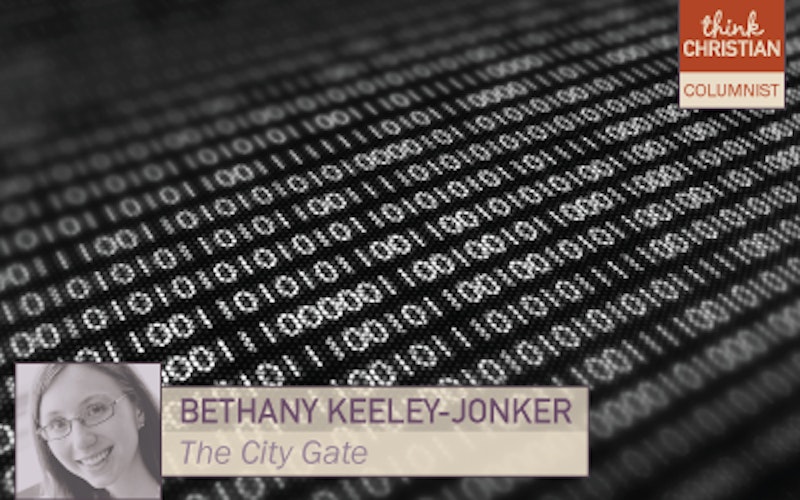
Culture At Large
Why big data has nothing on God’s omnipotence
I’ve been thinking a lot about what we can do with data lately, and also its limits. A recent article at The Verge describes how the extensive amount of surveillance information about the Boston Marathon did not help as much as one would think in preventing the tragic attack that occurred there. Despite several CCTV cameras, hundreds of spectators taking photos of the finish line and law enforcement nearby, identifying the suspects took several days. Meanwhile, old-fashioned eyewitness testimony from citizens, like victim Jeff Bauman, was crucial. As the Verge article details, the sheer preponderance of data might have hindered the investigation as much as it helped, creating a greater haystack in which to find the relevant needles. In addition, the large amount of publicly available data led redditors and journalists at publications like the New York Post to suspect and draw attention to innocent civilians.
Certainly, in the case of unexpected terrorism, problems with the gap between the data we can access and our ability to filter it are understandable. But even in marketing, a field that has found numerous applications for the massive amounts of data available to them, guesswork is still a factor. Atlantic writer Alexis Madrigal was stunned when he and his wife received a baby catalog before they told anybody they were expecting. Madrigal set out to find out how big data nailed them so well and found out it was a lucky guess, based on gifts they purchased for nieces and nephews.
The algorithms and programs used to filter and respond to data are at least as fallible as the human beings who designed them.
These mysterious data successes (or accidental successes) are easy to see as a kind of Big Brother future, where technology can track your every move and report back to … someone. But we can also see the cracks in the system when we notice things like off-the-wall advertisements on Facebook, despite the years of personal data the company has. (Recently an advertisement told me I could finish my bachelors online, even though my Facebook profile notes that I’ve been done for eight years.) Figuring out what data about whom is relevant – and to what ends - is a pretty difficult task, made harder by the fact that humans tend to behave unpredictably. A friend who works in social research likes to make a distinction between data, information, knowledge and wisdom – by degree of difficulty to attain.
These stories remind me that even though companies and governments are doing amazing/terrifying things with data, it’s at best imperfect. The algorithms and programs they use to filter and respond to data are at least as fallible as the human beings who designed them. This came to mind when I was recently re-reading the word of God to Samuel when he was anointing a king of Israel: “The Lord does not look at the things people look at. People look at the outward appearance, but the Lord looks at the heart.” Over and over in the Bible, God knows just the right piece of information and reveals it at just the right time. God chooses the right - if unlikely - people to do His will in the world. That’s perfect wisdom.
Don’t get me wrong: Christians (and others) are right to pay attention to the ways that governments and corporations gather data and use that information. But we can also see its complexity and failures as evidence of the amazing omnipotence of our God - who doesn’t make errors and who knows right where to find us, even inside a great fish or the depths of hell.
Topics: Culture At Large, Science & Technology, Technology, News & Politics, Media